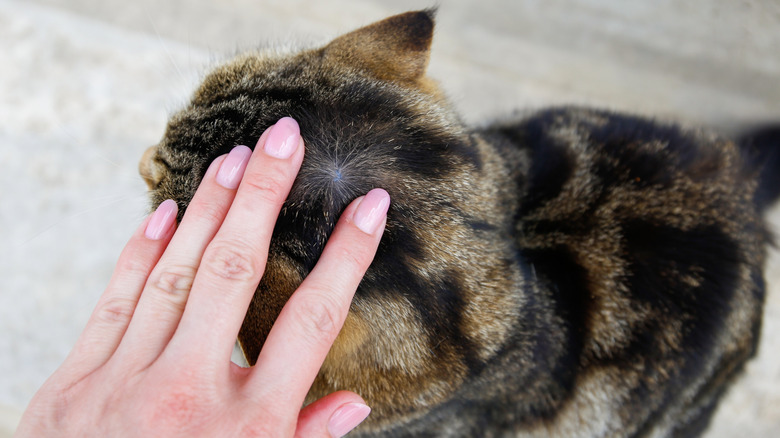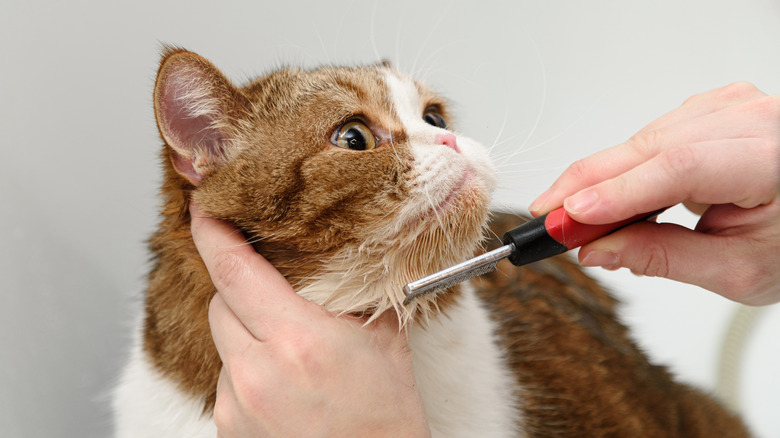Home Remedies For Lice Treatments For Kittens
We may receive a commission on purchases made from links.
Although less common than fleas, lice infestations in kittens are serious enough to warrant quick action. These tiny, wingless insects — felicola subrostratus, a type of chewing louse — spend their entire three-to-four week life cycle on the host animal, feeding on their skin. In addition to being gross, a lice infestation can lead to complications like severe skin irritation, hair loss, secondary infections, or anemia, particularly in young kittens who are vulnerable. This is why early detection is crucial. Some signs of a lice infestation in a kitten include excessive scratching, biting, or grooming, as well as patchy hair loss and a scruffy coat.
Typical lice treatment is similar to the way one gets rid of fleas in kittens. It involves a multi-week course of washing the animal with medicated shampoo and applying topical anti-parasticic medications like fipronil, selamectin. However, young kittens may not be old enough to receive some of these treatments. The FDA specifically approves selamectin and fipronil for cats that are at least 8-weeks old. Although some vets may make exceptions, if your kitten is younger than this and dealing with a lice infestation, certain at home-remedies may be able to help.
Treat your kitten's lice at home
One of the safest ways to manage a lice infestation is with a comb. Twice a day, use a fine-toothed flea comb like Kopal Stainless Steel Pet Lice Comb and run the tool from the top-to-bottom of your cat, targeting hard-to-reach areas like the head, neck, and tail. It may help to wash them beforehand to wash your cat with warm water and dish soap to wet the fur. Repeat this process for several weeks until another lice life cycle has completed and you can verify all new nymphs are gone. Keep in mind that kittens under 6 weeks of age are vulnerable to developing hypothermia, so be sure to towel dry them completely after every bath.
According to pet parents, you can make combing the nits easier by applying olive oil to dry fur before a wash. Some claim this method will suffocate the lice, but there has yet to be any scientific studies that prove this. In any case, olive oil won't hurt your kitten and may soften their fur enough to make the experience more comfortable. Leave the oil on for 15 minutes before rinsing it off with warm water and apply at gentle soap that is safe for cats. Perform this treatment twice weekly for up to three weeks.
In addition to these remedies, deep cleaning your house is critical to prevent reinfestation. Wash all bedding, toys, and grooming tools in hot water, vacuum thoroughly, and consider using a vet-approved environmental spray. Furthermore, if you have multiple cats, isolation is key if one is dealing with lice and the others are not. Keep the infested kitten separate until you can verify they no longer have an infestation. When used together, these measures can effectively manage lice while minimizing risks to your household.

